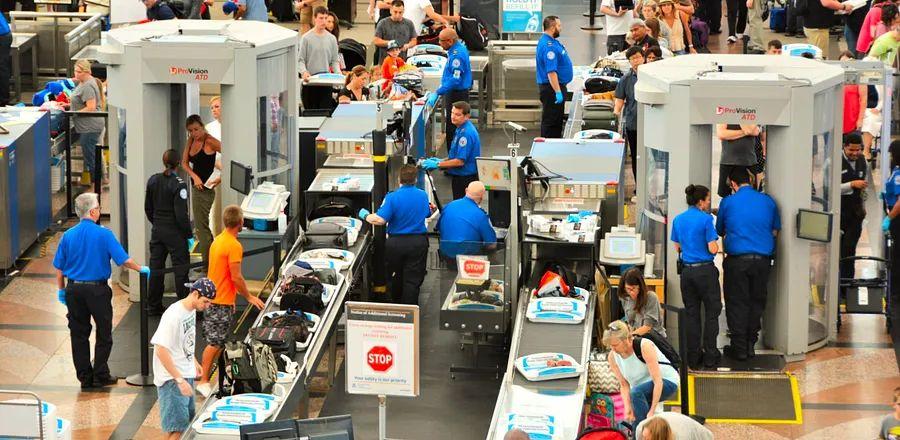Will this summer's flying experience echo the chaotic travel disruptions of 2022? Experts weigh in.

With summer travel just around the corner, the memories of last year's air travel nightmare remain vivid for many.
Concerns are valid as the FAA, TSA, and industry leaders anticipate record travel volumes this summer, potentially surpassing 3 million daily flyers during peak days. Many issues that contributed to the wave of cancellations and delays last year, including staffing shortages at airlines and airports, are still unresolved.
TSA administrator David Pekoske acknowledged the challenges ahead. The agency plans to alleviate delays at security checkpoints through a recruitment campaign featuring signing bonuses and salary increases effective July 1, although it's uncertain if sufficient new staff will be on board for the summer influx.
When asked about this summer's expectations, U.S. Travel Association CEO Geoff Freeman stated, “Travelers should brace themselves for a bustling season. Expect longer lines and a busy experience.”
Strikes in Europe are already creating challenges
In Europe, strikes by pilots and airport staff have led to a significant increase in flight cancellations and delays, with the looming threat of more strikes during the busy summer travel season. The United Kingdom, France, and Germany are currently the hardest hit by this labor unrest.
Christina Tunnah, general manager of marketing and brands at World Nomads, stated, “We’re experiencing an unprecedented surge in demand for long-haul travel.” With issues arising even before the peak season begins, travelers face numerous flight disruptions and lost luggage, she added.
Tunnah highlighted that “the system has not yet fully adapted to meet the rising demand,” pointing out that travel insurers are already witnessing an increase in claims. Last summer, most claims were related to trip disruptions, with around 10 percent stemming from luggage issues.
Considering all these factors, airline expert William McGee, senior fellow for aviation and travel at the American Economic Liberties Project, remarked, “It’s difficult not to be worried about how this summer will unfold.”
Airlines are taking proactive steps to reduce thousands of East Coast flights
Recently, observers felt optimistic when the FAA successfully urged airlines to voluntarily reduce flights in the nation’s busiest airspace—the New York City region. Starting May 15, American, Delta, JetBlue, and United will cut thousands of departures over the next four months at New York’s airports and Reagan National in Washington. This may help alleviate delays across the country, as disruptions at JFK, LaGuardia, and Newark often have widespread effects.
At these airports, space is so limited that airlines must secure specific takeoff or landing times, known as “slots.” However, due to a “use it or lose it” policy, airlines often retain slots they don’t require just to prevent competitors from acquiring them. Under the FAA agreement, airlines that give up slots during this trial phase will be able to reclaim them later.
The air traffic controller shortage rivals the pilot shortage
The actual impact of these cuts remains uncertain, especially since they are a response to a much larger issue: the shortage of air traffic controllers in the U.S. Currently, the number of certified controllers is near a 30-year low, largely due to reduced recruitment and training during the pandemic. This shortage is especially severe in the New York City area, where only 54 percent of air traffic controller roles are filled.
“Last year, we faced a pilot shortage, and now with the current controller deficit, I can foresee challenging days ahead. Thunderstorms, for instance, could lead to significant delays,” McGee stated. While airlines can't control the weather, he emphasized, “what was truly inexcusable last year was the number of flights canceled at the last minute.”
Why summer 2023 may (hopefully) be better than summer 2022
Although air travel this summer is expected to remain difficult, there are indications that it won’t be as severe as in 2022. For instance, despite high travel demand, airlines are being cautious about not overextending their flight schedules beyond what can be managed.
While the overall number of domestic flights in July 2023 has increased by 3.6 percent compared to July 2022, the major airlines—American, Delta, and United—are keeping their increases below 2 percent from the previous summer. However, the total seating capacity has risen by about 9 percent compared to last year, as airlines are substituting smaller jets for larger ones to maximize capacity in an already strained system, according to Cirium spokesperson Mike Arnot.
“These capacity adjustments will alleviate some issues,” said Freeman from U.S. Travel. “I’m hopeful that this summer will resemble Thanksgiving week, rather than the chaotic scenes we witnessed last summer.” Thanksgiving week 2022 was largely viewed as successful, with minimal travel disruptions during a busy holiday period.
How travelers can steer clear of air travel troubles this summer
What steps can you take to ensure a travel disaster doesn't ruin your trip? Tunnah from World Nomads shares these helpful tips.
Consider departing a day or two earlier. If you have important plans at your destination, allow at least one extra day as a buffer in case of cancellations or delays.
Opt for carry-on luggage if possible. Arriving on time only to have your bags go missing is not the ideal start to your journey.
Understand your rights if issues arise. Familiarize yourself with consumer protection regulations in both the U.S. and the European Union, and think about obtaining travel insurance that covers a variety of situations, including labor strikes and hurricanes, like “cancel for any reason” policies.

1

2

3

4

5
Evaluation :
5/5